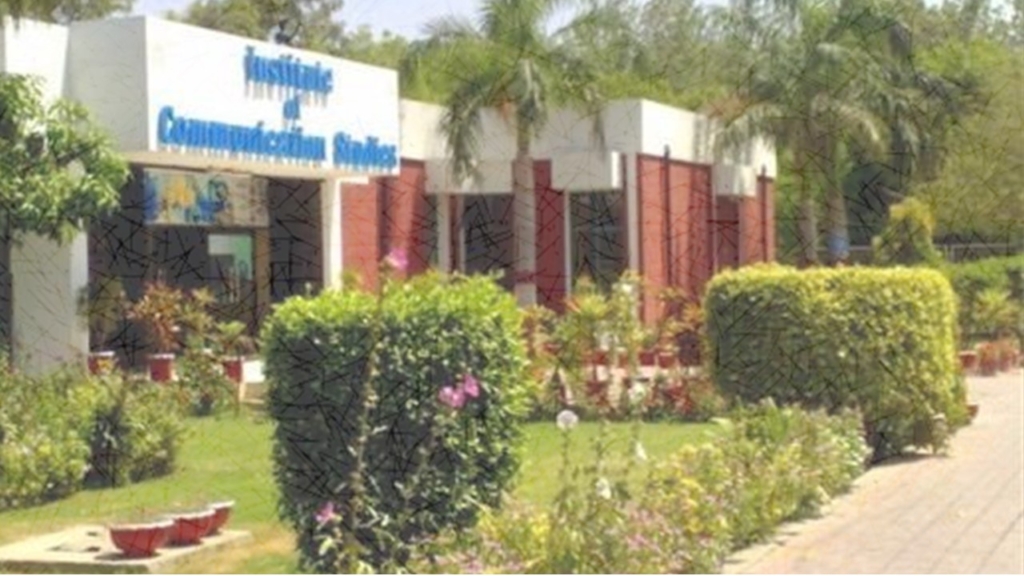The students of communication studies in the Punjab University have reviewed Waheed Murad: His Life and Our Times (2015) as part of an assignment given by the senior professor Dr. Bushra Rehman. With thanks, excerpts from some of those reviews are being shared here.
Muhammad Tayyab
A comparison of this book with other biographies of actors, from the other countries, could be drawn but I will not. In my opinion this book is matchless and has no comparison even with several other biographies including Jinnah: India, Partition, Independence; Shahab Nama; In the Line of Fire: A Memoir and My Brother. All of these biographies are masterpieces in their own right but this book has its own flavor and value. I rank this book 4.5 out of 5 and place it in the first row of my book shelf.
Waheed has become a wonder for me after reading the book, and yes, I must say that the writer has successfully achieved the goals he set for this biography. The ultimate thing I learned is that Waheed Murad was not like those artists who picked at others just for the sake of criticism; rather I have found him as a reformer. This and the above mentioned traits ensured that he became a legend. Waheed had and has millions of fans, and the number has increased after his death. The number will further rise after people read this book.
Maria Syed
It is not merely a biographic detail of Waheed Murad’s life; it provides deep insight concerning the correlation between Pakistani cinema and the social and political circumstances of that time. The writer tried to tell the story of the only school of thought that remained committed to the goal the nation had adopted under the Quaid. This book is an admirable resource for the students of mass communication, educators and film makers.
Zahra Nadeem
Waheed Murad is a childhood hero whose glitter has shone brighter with the passage of time, but he was not a phenomenon until one came to know Khurram Ali Shafiques’s insights about him. This book sits in the category of biographies but actually this is a textbook on Pakistan. This book tells so much about Waheed Murad, yet every aspect related to Waheed Murad tells a tale of aspirations of a nation and the people. The book points to invaluable insights about Waheed Murad a true artist showing his vision and foresight for the society, which amply reflects in his own stories and movies which are rich in prognosis. Waheed Murad was not like those artists who points to an issue, he was from the category of reformers. This book shows how through Waheed Murad a complete destiny of a nation and its civilization got expressed.
Muhammad Usman Tariq
When I started, I felt the book is mistitled and it must have a title like “Indo-Pak history before and after partition with special focus on the ups and downs of Pakistani Film Industry”. In the beginning I developed an opinion that the writer has unnecessarily discussed history but later on while reading the book I realized how much important it was. It is pertinent to discuss history as movies are always the reflections of sociopolitical changes…
Though I already found words of praise for the movies of Murad in Daddy’s diary written during his college life at Lahore in 1971 and it was the first motivation to watch movies of Waheed Murad, the book by Shafique is another motivation that persuades readers strongly to watch his movies. It will be a great pleasure to watch Murad’s movies after having a clear understanding of his versatile personality brilliantly painted by Shafique through words. I didn’t find such a comprehensive book on this subject ever before.
Wajeeha Arif
According to the author it is the story of Iqbal’s literary movement after his death in 1938. We know that the dreams of this movement came true when Iqbal’s party gained a spectacular victory in the election of 1945-46, paving the way for the birth of Pakistan. We also know that every school of thought except one had rejected this goal within the first seven years of the country’s existence. In a broader perspective it’s not a story of a filmstar; it’s our story, it’s about how our dreams, our ideals and perhaps even our souls got stolen, and how we still do not know. In my point of view, no doubt the author covered the diverse aspects of Waheed Murad’s life very well and the book is informative and well-explained. After reading this book, I compared the 70’s and 80’s film industry with the present Pakistani film industry and realized that today, the Pakistani film industry has forgotten the real meaning of “Art” as Waheed Murad introduced it at that time.
Madiha Maqsood
The best part of the book is the way the writer relates the context of the films with the socio political scenario of that time. It not only reflects his knowledge of the political events but also enhances the personality of Waheed Murad, who actually worked hard to transform the Pakistani film industry and the whole society by showing the actual picture of societal realities. After finishing reading the book, I got so familiar with the personality of the Chocolate-Cream hero that I felt I had met him.
